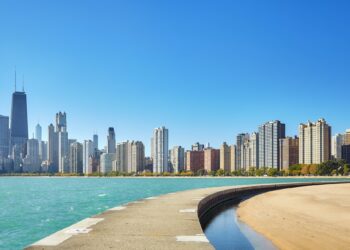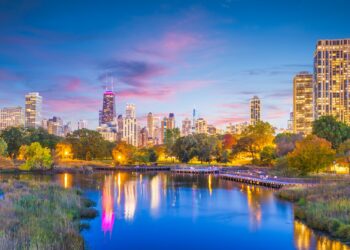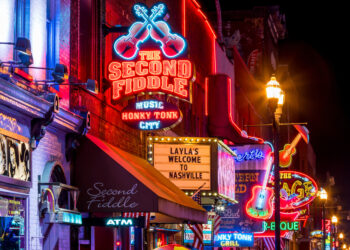Chicago
Chicago: A Rich Tapestry of History and Culture
The city of Chicago, nestled on the southwestern shore of Lake Michigan, is steeped in a rich and varied history. Founded by a black Haitian explorer named Jean Baptiste Point du Sable in the 1770s, it was a small settlement initially known as 'Eschikagou'. The area changed hands between the British, the Native Americans, and the United States, post the American Revolution. In 1833, Chicago was officially incorporated as a town with a mere 200 inhabitants.
The construction of the Illinois and Michigan Canal and later the arrival of railroads transformed Chicago into a bustling transportation hub. In 1871, the Great Chicago Fire destroyed a third of the city, but this disaster also created an opportunity for growth. An ambitious rebuilding program began almost immediately, attracting architects and engineers from across the globe.
By the late 19th and early 20th century, Chicago had become a centre for modern architecture and a symbol of the American Dream. During the Prohibition Era, it gained notoriety due to the rise of gangsters like Al Capone.
The city's history is characterized by a continuous struggle for civil rights and labour reforms. It was a focal point for the Civil Rights Movement, and has a legacy of impactful labour strikes. Today, Chicago is renowned for its vibrant cultural scene, impressive skyline, and as a hub for finance and industry.
Accomodation
Basic Information about Chicago
| Founded | 1833 |
| Population (2023) | Approximately 2.7 million (Reference: U.S. Census Bureau) |
| Elevation | 578 ft (176 m) |
Average Temperatures for Each Season
| Winter (Dec - Feb) | Spring (Mar - May) | Summer (Jun - Aug) | Fall (Sep - Nov) | |
| Average Temperature (°C) | -3 to -1 | 4 to 15 | 20 to 29 | 8 to 18 |
| Average Temperature (°F) | 27 to 30 | 39 to 59 | 68 to 84 | 46 to 64 |
Places To Visit in Chicago | Suggestions From My Last Trip
Admittedly, we didn't have much time in Chicago but exploring another new city this year was great. It seems for...
Read more10 Hotels in Chicago That Are Definitely Worth A Try
Chicago is one city that will surely please any visitor. From the traveller who has been around the world to...
Read more5 Free Things to do in Chicago
Like most cities, Chicago can be super expensive. There's a fantastic restaurant scene, tons of broadway shows, concerts constantly… but as...
Read moreTop 9 Chicago Food Spots
Chicago has one of the most amazing selection of foodspots to try. So, if you're visiting soon, here's a cheatsheet...
Read more






